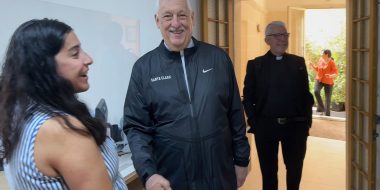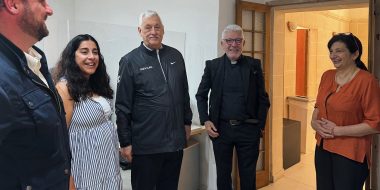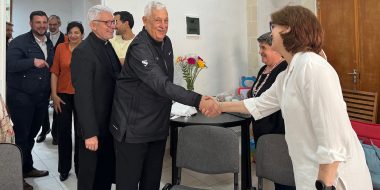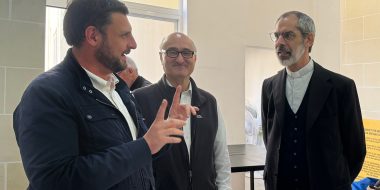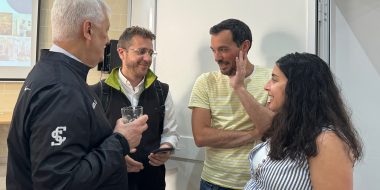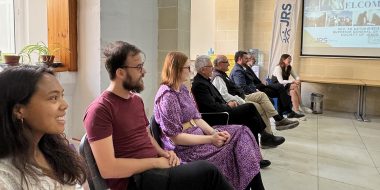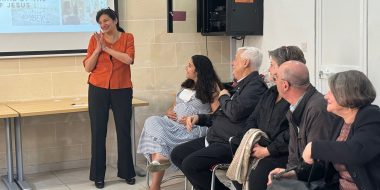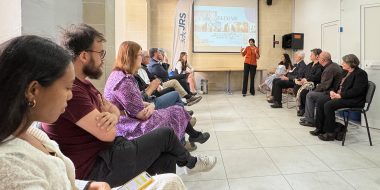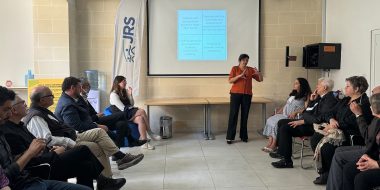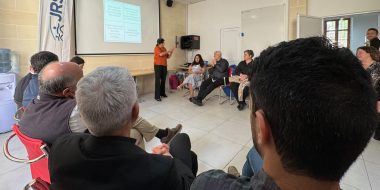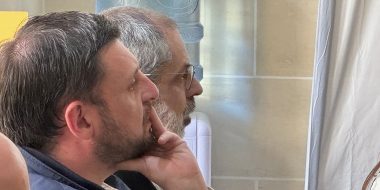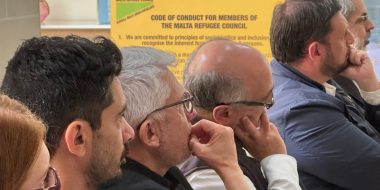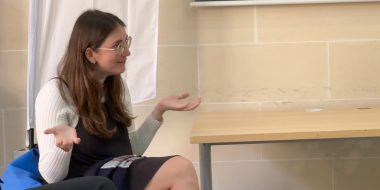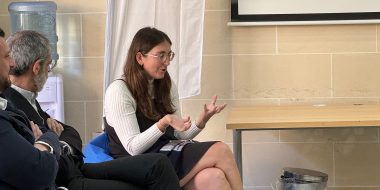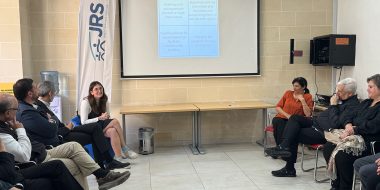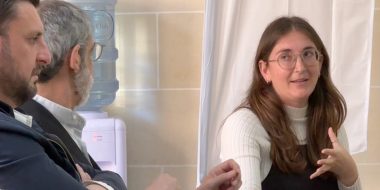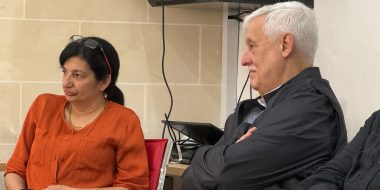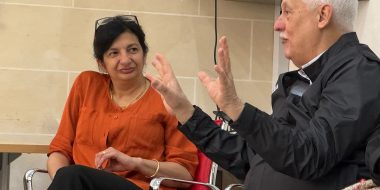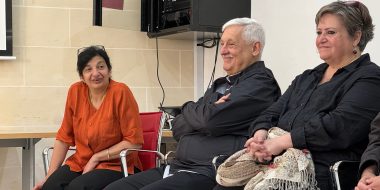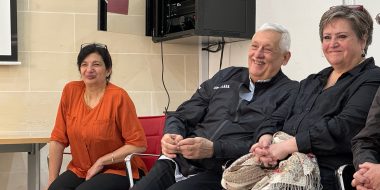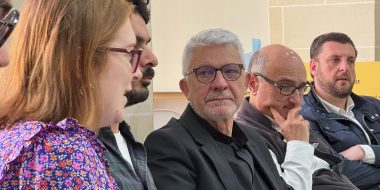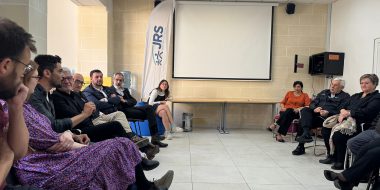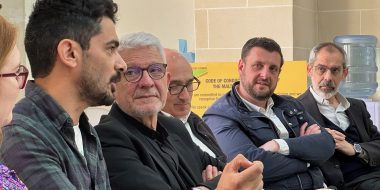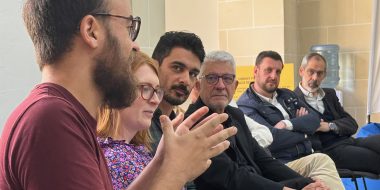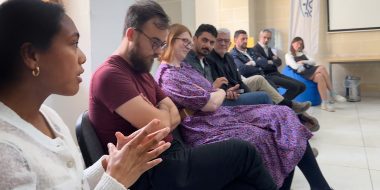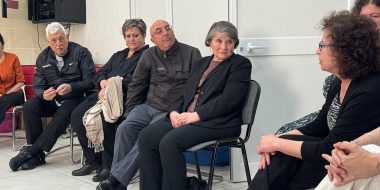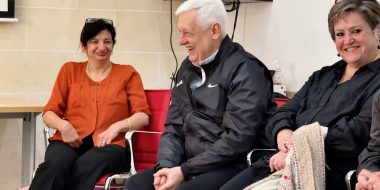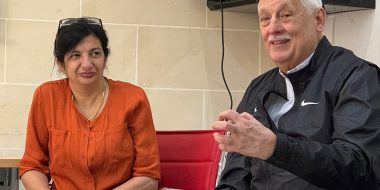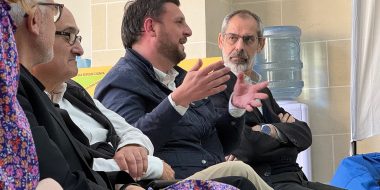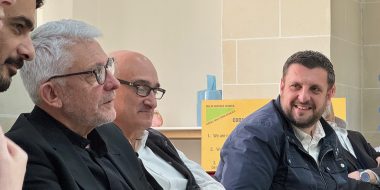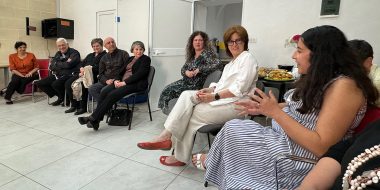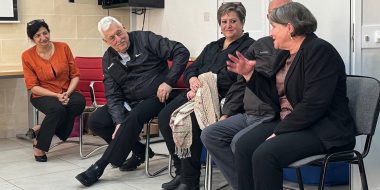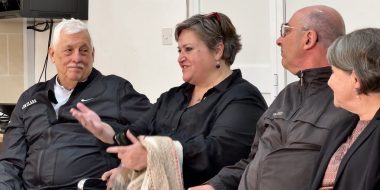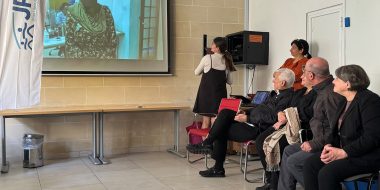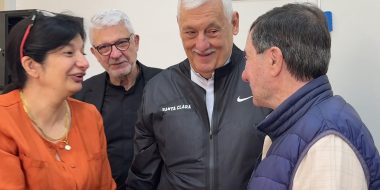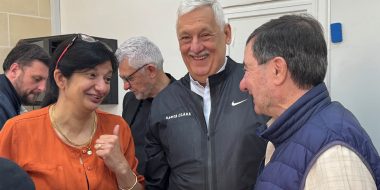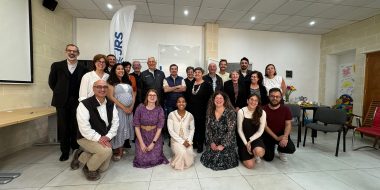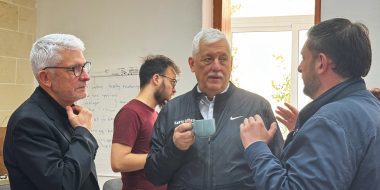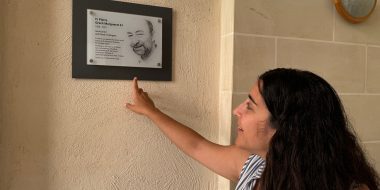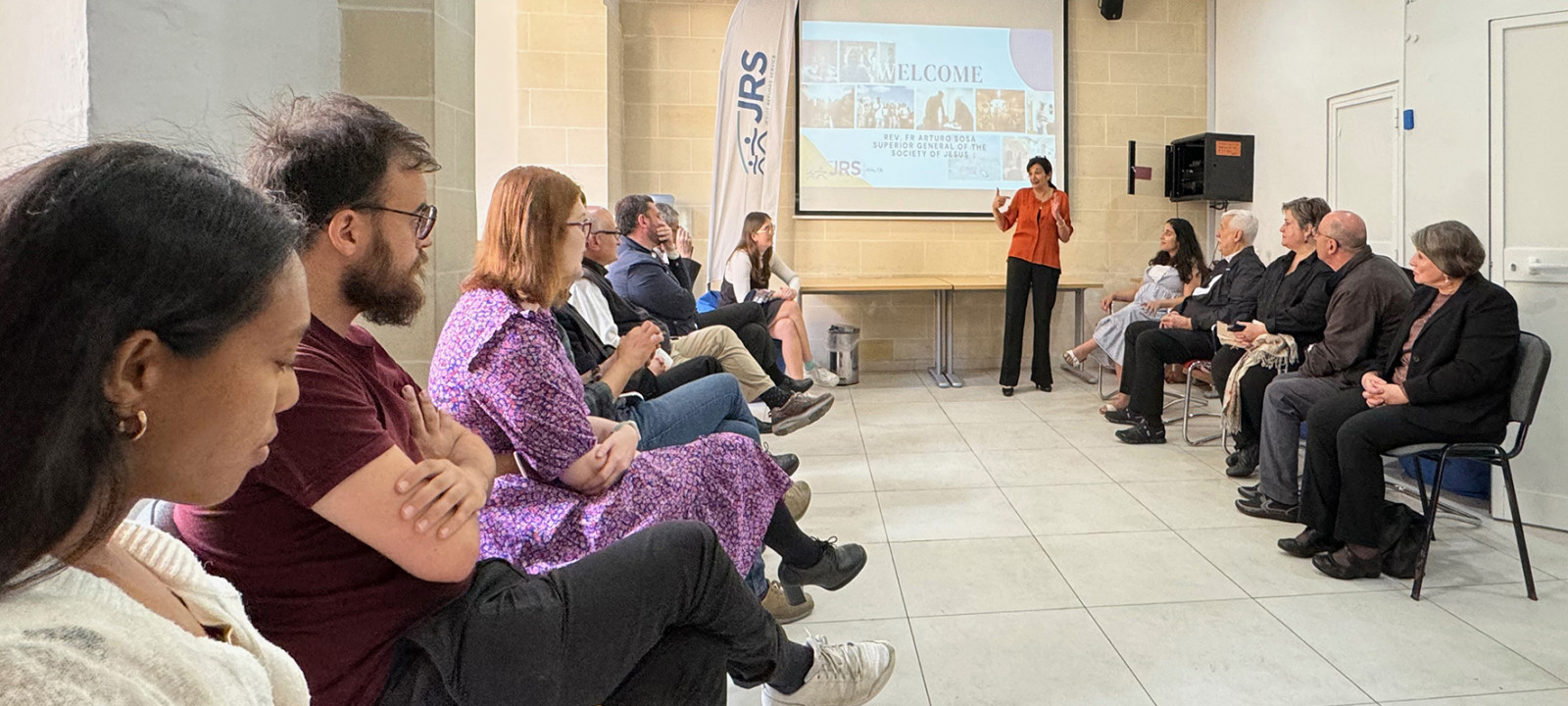
‘Bringing humanity to desperate situations’ – Fr General on JRS in Malta
“Thank you for helping to bring me again to the reality of the lives and difficulties of refugees and asylum seekers, a reality that one cannot even imagine and yet it happens so frequently.” These were the words of Fr Arturo Sosa, Superior General of the Jesuits, after having listened to the JRS team on 11th May 2024, the third day of his visit to Malta, as they spoke all about the needs it meet and the services it offers.
“I was very happy to listen to you, to listen to what you are doing, and to see that you are doing it so well! It is a big thing that people feel that they can come to JRS without fear. It is such a special way of being in touch with people.
For the Society of Jesus JRS is becoming more important every day. Since JRS was founded, the problem has become a very complicated and very human one. To find teams like this one in Malta touching humanity in this way, for us this is a great richness. The magnitude of the phenomenon of migration of people who feel constrained to move to another part of the world is enormous, they find so many obstacles, but they find you, people willing to give a hand.
People only leave home because they are desperate. Imagine somebody who carries their children and leaves their dreams behind, and what they find is a wall, or a detention centre. It is really hard. To bring and maintain humanity in such situations is so precious.”
The Jesuit Refugee Service in Malta – Who are they, what do they do and why?
The first 30 years
JRS Malta started operating in 1994, when Fr Joe Cassar SJ, together with a handful of volunteers, started a mission of accompaniment and support among the refugees in Malta at the time, who were mostly from Iraq and former Yugoslavia.
For the last 25 years, JRS Malta focused on the provision of information and professional services, creating the first free legal service for asylum seekers in Malta in 1999. The service operated primarily in detention, especially after 2002, when the number of asylum seekers arriving by boat from Libya increased dramatically.
In 2003, the team expanded to include a social worker, who worked on supporting vulnerable asylum seekers – especially unaccompanied minors – in detention and supporting the state to open the first reception centre for unaccompanied minors, so that children arriving in Malta would no longer need to be detained. From 2010, the psychosocial team expanded gradually and today includes a nurse, who supports asylum seekers to access medical care, counsellors/psychologists, and a psychosocial caseworker focusing on education, in addition to a social worker.
In addition to the provision of services, JRS Malta has always had a strong focus on advocacy and awareness raising. We have been present in schools, through our school outreach programme, in some shape or form, since 2004.
Although our programmes and services have remained largely the same over the years, the focus has changed in response to the needs on the ground. Today, the JRS team operates primarily in the community, as, since 2019, our access to detention has become extremely restricted and today we are only allowed to provide legal services in detention.
Refocusing the mission of JRS
Since 2023, a process of discernment has been initiated to refocus the mission to bring it in line with the current context.
Current context:
o Steady drop in the number of boat arrivals and the number of asylum applications since 2019 – arrivals dropped by almost 90% between 2019 and 2023, from 3,406 in 2019 to 380 in 2023 (see table below), and applications from 4,023 to 490 during the same period – as a result of Malta’s policy of non-rescue, pushbacks of asylum seekers to Libya, and agreement with Libya on interception and return.
o Shrinking protection space, evidenced by the dropping recognition rate (blue line in the table above), which highlights the exponential increase in the number of rejections in recent years, and the increased use of accelerated procedures for asylum seekers coming from ‘safe’ countries, who are almost automatically rejected in most cases.
o Lengthy detention especially for asylum seekers from ‘safe’ countries, with very limited access to information and legal services – their situation is compounded by the fact that they are almost always channelled to the accelerated procedure and rejected.
o Growing number of rejected asylum seekers and their children, who have been in Malta for years, without hope of regularisation, particularly after the termination of SRA in Nov 2020, who live with limited rights and no access to documentation or legal status.
o Increase in number of asylum seekers in a particularly vulnerable situation, because of medical or mental health problems, who struggle to access the services they need to live with dignity.
o Lack of support for unaccompanied children and young adults as they transition to adulthood – need to move beyond survival to more in-depth support, to reach their potential and live with dignity, which is not available in most cases, as most state agencies and NGOs provide little more than basic services.
o Growing social tension, especially in areas where there are large numbers of migrants – lack of spaces for people to come together as equals.
o Portrayal of migrants and migration as a security issue – focus: highlighting and addressing ‘illegality’ rather than needs.
o Government refusal to engage in any form of dialogue with civil society – civil society fragmented and too busy dealing with individual problems and firefighting to think strategically.
What is ‘core’?
Walking with young people towards a hope-filled future. We choose to walk with young people who struggle to access the services and support they need to achieve their goals, empowering and accompanying them, for as long as they require our support, on their journey to becoming independent and active members of society.
We do this through the provision of support to access education, be it information about existing educational opportunities, literacy support, language classes, or more individualised educational support. Mentoring is a key element of the support provided, ensuring that each individual has the support they need to complete, and possibly further, their studies or find employment in line with their qualifications. We also operate a small home for 3-5 full time students, in a house loaned to us by the Maltese Jesuits.
Standing with the vulnerable and excluded and supporting them to live life with dignity. We choose to be present with, and to work with those who are unable to access the support they need most, who struggle to meet their most basic needs and who find themselves stuck in the margins of society, working with others to support them to live with dignity.
Asylum seekers experiencing severe or chronic illness or mental ill-health often find it difficult to access the care and support they need, be it medical care, accommodation, or financial support. The situation of those whose application has been rejected and are living in Malta with tolerated stay is even more difficult, as they few legal rights. Through the provision of support from the JRS nurse, social work support, psychological services, and legal assistance, we work to ensure that even person has access to medical care and to the other services that they need to live with dignity.
Creating spaces for reconciliation to facilitate community building. Acknowledging our part in a society that excludes, and mindful of our own contribution to social tension, we strive to be part of the transformation of our community into one that is more just. Through encounter and dialogue, we choose to work with the community, empowering people to take ownership of fostering this social change.
This area of our work, which is relatively new in a programmatic sense, takes us out of the office into the communities of Hamrun and Marsa, both of which have experienced social change because of migration. There we conduct regular outreach in the community, and work with parishes and other organisations to co-create spaces where people can come together, get to know each other, and build relationships. Faced with the growing awareness of the pervasiveness of loneliness and isolation among asylum seekers, we are also exploring how we can make our office more of a social space, where people can come together to find companionship and support for inclusion.
Working for systemic change and justice. We choose a holistic approach to doing this, working closely/engaging with the community, but also with decision-makers, with the aim of fostering long-term social change and justice.
We are currently focusing on detention, regularisation leading to a stable legal status for rejected asylum seekers who have been in Malta for many years with tolerated stay, and support to access medical care.
Image gallery for Fr General’s visit to JRS
